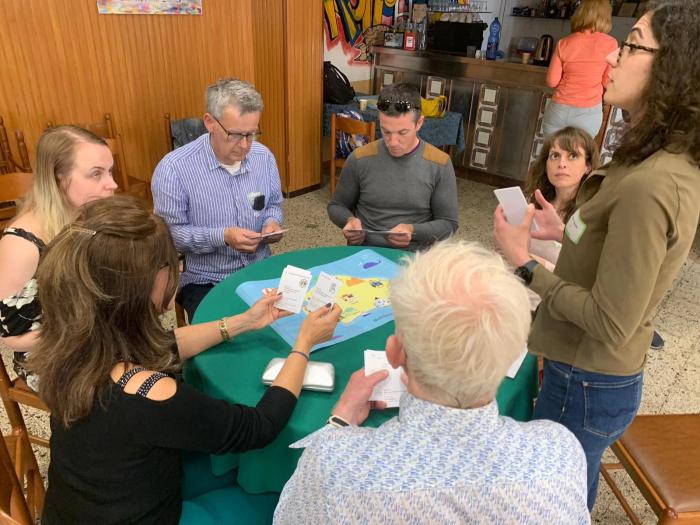
On 17 May, after this year's Clean energy for EU islands forum in Pantelleria, we organised a workshop on Sustainable land transport as part of the capacity building activities of the secretariat.
Focus Areas:
The workshop focused on sustainable land transport solutions, addressing electromobility infrastructure, sustainable mobility actions, and alternative fuels such as hydrogen and biofuels. Input from participating islands guided the selection of topics, ensuring relevance to local challenges and priorities. The discussions aimed to provide islands with practical strategies for enhancing their transport systems in a sustainable manner.

Key Questions Addressed:
- What is the EU regulatory framework for sustainable transport?
- How can islands optimally design and implement public EV charging infrastructure?
- What are the main components of a hydrogen ecosystem for islands?
- Which soft mobility actions (traffic control, bike lanes, public transport) have the most impact?
- What challenges have pioneering mobility projects on islands like Astypalea, Kythnos, and Mallorca faced?
Main Takeaways:
- EU Regulatory Framework: The workshop emphasised the importance of understanding and adhering to the EU regulatory framework for sustainable transport. Compliance with these regulations is crucial for the successful implementation of sustainable mobility projects.
- Electromobility Infrastructure: Designing and implementing public EV charging infrastructure on islands requires a tailored approach. Factors such as island size, population density, and existing infrastructure must be considered to ensure effective deployment.
- Hydrogen Ecosystem: Establishing a hydrogen ecosystem on islands involves multiple components, including production, storage, distribution, and utilisation of hydrogen. Collaboration among stakeholders is essential for developing a comprehensive and functional hydrogen infrastructure.
- Soft Mobility Actions: Traffic control, bike lanes, and improved public transport are impactful soft mobility actions. These measures can enhance sustainable transport on islands by reducing traffic congestion, promoting non-motorised transport, and providing efficient public transport options.
- Challenges in Pioneering Projects: Islands like Astypalea, Kythnos, and Mallorca have faced challenges in their pioneering mobility projects, including regulatory hurdles, infrastructure limitations, and community engagement issues. Learning from these challenges can help other islands anticipate and address similar issues in their own projects.
Overall, the workshop provided valuable insights and practical strategies for advancing sustainable land transport on islands, contributing to their broader decarbonisation efforts.
